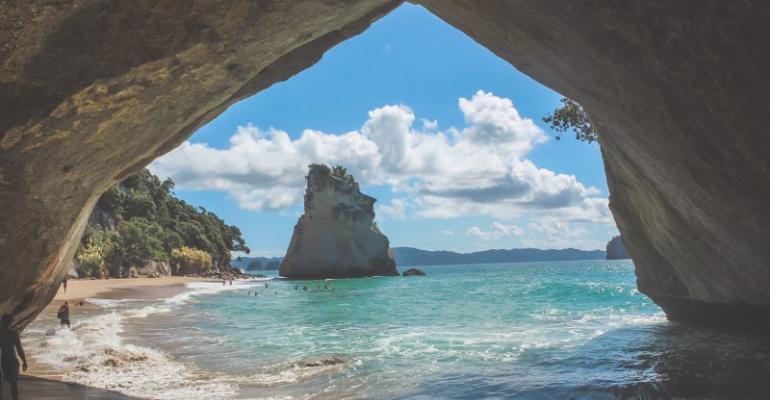Wednesday 26 Feb 2020
10am-11am
Location
Virtual hui and physical hubs
100% climate resilient? Tourism, culture and climate change

Just how prepared is Aotearoa’s highly valuable tourism sector for the coming impacts of climate change? The answer is similar to most sectors of New Zealand society: not nearly prepared enough. And yet, some aspects of tourism – its emphasis on place and stories of place, its connection to values such as manaakitanga, whānautanga and kaitiakitanga – provide tourism operators with a ready-made planning guide, as they consider how to climate-proof their operation.
In this seminar, presenters Priya Kurian and Debashish Munshi (University of Waikato) will take you through their new research report, Centring Culture in Public Engagement on Climate Adaptation: Re-shaping the Future of the NZ Tourism Sector.
In many ways, tourism presents us with a microcosm of the intersecting challenges all sectors face in relation to climate adaptation. Like other sectors, tourism is made up of multiple small-to-medium-size enterprises, many of whom don’t feel they have the resources to invest in long-term planning, or the ability to influence local or central government investment decisions around infrastructure and the natural environment. The lack of a national adaptation framework and funding, an uncertain regulatory environment and the pressures of day-to-day operations mean that climate adaptation is low on the list of priorities for many tourism businesses. Nevertheless, recent local and global events reiterate yet again how vulnerable the tourism sector is and will increasingly be to the impacts of climate change.
Still, tourism can take the lead in showing others how to adapt to our changing climate – including by planning from and leading with culture. Tourism, by its very nature, rests on the four ‘pillars’ of culture identified in this research: place, values, power and narrative. Tourism operators already understand the imperative to operate sustainably, and are very often champions for their local environments. By integrating climate information into the stories they tell about their place; by making sure these stories and any development plans are aligned with core values of care for people and nature; and by understanding how they can exercise power in shaping sustainable tourism, operators can future-proof their businesses from the emerging impacts of climate change.
The report also finds that there is a critical need to increase operators’ awareness of relevant climate information, include about changing temperatures, extreme weather, floods and droughts, and the impact these are having on marine, coastal, river and alpine environments. Operators need better information about local impacts on flora and fauna, pest and disease profiles, and the relationship of climate impacts to air travel (for example, about the future reluctance or inability of tourists to travel to New Zealand).
Debashish and Priya’s work in this project leads on from their Climate Futures project (with Kum-Kum Bhavnani and John Foran of the University of California at Santa Barbara), funded by a Rockefeller Foundation grant.
Our presenters will be joining us live online from the London School of Economics.
Physical hubs:
- NIWA Wellington: Allen Building, 3rd Floor meeting room
- NIWA Lauder: Computer Room
- NIWA Christchurch: TerraNova Room
- University of Canterbury: Level 7 Meeting Room, Julius Von Haast Building
- University of Otago: Room 312, Department of Physics, Science III Building
Please note, all visitors to NIWA must sign in on arrival.
We encourage you to set up your own hub and bring colleagues together to participate in the seminar. Please let us know if you do set up your own hub and would like to test your VC facility prior to the seminar.
Email: [email protected]
ABOUT OUR PRESENTERS
Priya Kurian
Priya Kurian (University of Waikato) is a professor of political science and public policy. She teaches in the areas of environmental politics and policy, media politics, and gender and the environment. Priya’s research is interdisciplinary and involves work on environmental, social, and cultural sustainability.
Debashish Munshi
Debashish Munshi (University of Waikato) spans disciplinary boundaries as he seeks answers to difficult societal questions in fields ranging from the social sciences, management, organisational communication, science and technology, and future studies. His inter-disciplinary work is anchored in postcolonial theory and aims for social justice.